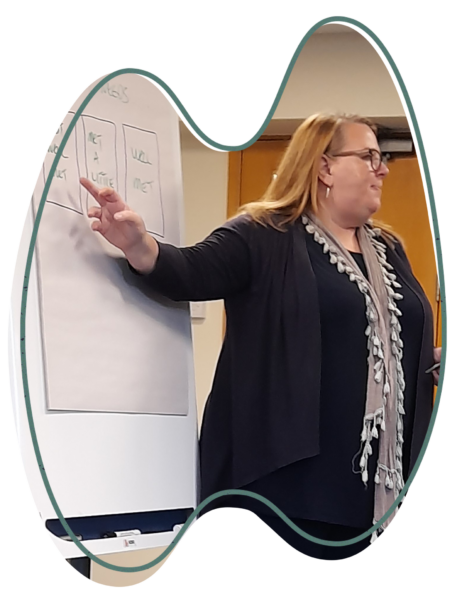Grief – the price we pay for love

Grief is something that touches all our lives at some point – it is the price we pay for love.
Many of us have experienced a bereavement, to have lost someone who means a lot to us and know how hard it is to experience.
It’s unique for each of us – there’s not a right or wrong way to grieve – and it can affect us in different ways.
Here, Fiona Hanlon, Head Trainer at The Mental Health Toolkit explores grief and loss and how we can support our colleagues through the difficult process.
A unique experience
There’s not a one size fits all way to grieve and a loss of a loved one can fuel many different emotions.
How we mourn may not be the same as other people.
On top of that, the circumstances of a loved one’s passing and the relationship we had with them vary greatly.
A loss could have been after a long illness, giving us some time to process the situation, or a sudden or unexpected passing creating shock and disbelief.
How we mourn the loss someone important in our lives is a deeply personal experience.
No ‘right’ way to grieve
There is no rulebook to grief, and no ‘right’ way in mourning.
It is worth remembering the word ‘should’ can be unhelpful when it comes to our emotions, and this is particularly true in bereavement.
You hear some people say there are stages to grief, but every loss is unique and how we react and process our emotions is very personal.
The loss of someone important in our lives will affect us both in the initial period following the death but also in how we meet our needs going forward.
Taking care of ourselves and meeting our needs
We all have physical and emotional needs we must meet to maintain our mental health – and it’s important that following a bereavement we continue meeting them.
Many of these needs are met without needing much thought, they are part of our daily routine - needs such as Food & Drink, Movement, Emotional Connection and Community.
But in a period of grief these routines may be disrupted – so it’s important to continue to meet them in other ways.
Everyone is different but this may include getting out of the office for a walk, making sure to eat well, get good quality sleep and meeting up with friends and family.
Meeting these needs doesn’t take away our grief, but it can help us look after our wellbeing while processing our emotions.
Our innate resources
We all have innate resources to help us meet our physical and emotional needs.
One resource that is useful in grief is Memory, not only in its ability to connect with memories that give us hope, but also in how it helps us experience the passage of time.
Memory allows us to remember good times we have had with lost loved one, reminiscing about moments of joy and laughter and things they have taught us.
Through this, we can keep loved ones in our hearts, so they are always part of us, remembering the good times we had with them.
Time is a healer
Grief can feel most painful in the immediate aftermath of finding out someone special has passed away.
It can be difficult in the moment to imagine feeling better following a bereavement, the pain is too raw, but as time goes on it does get easier as we process our emotions.
When someone returns to the workplace after experiencing the loss of a loved one, we might not know how to support our colleagues.
However, small gestures such as acknowledging their loss and being empathetic towards them, while also allowing them to have space when they need it, can make them feel more at ease with their return to work.
Help and support
There isn’t a right or wrong way to grieve and to remember a loved one – everyone finds their own way.
However, while mourning a loss it is important to remember to look after each other and to offer support in meeting physical and emotional needs.
If you would like to learn how to support your team with their mental health, you can book onto our Supporting Mental Health training course.
Our key workshops and courses
Speak to us today




